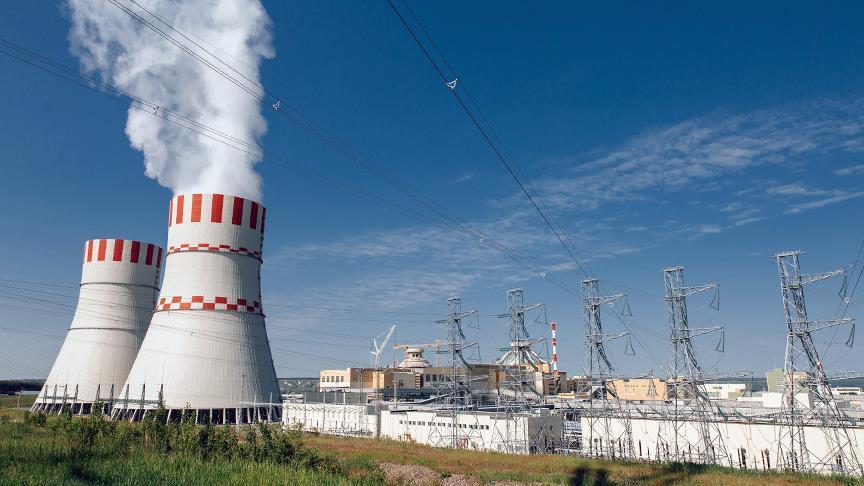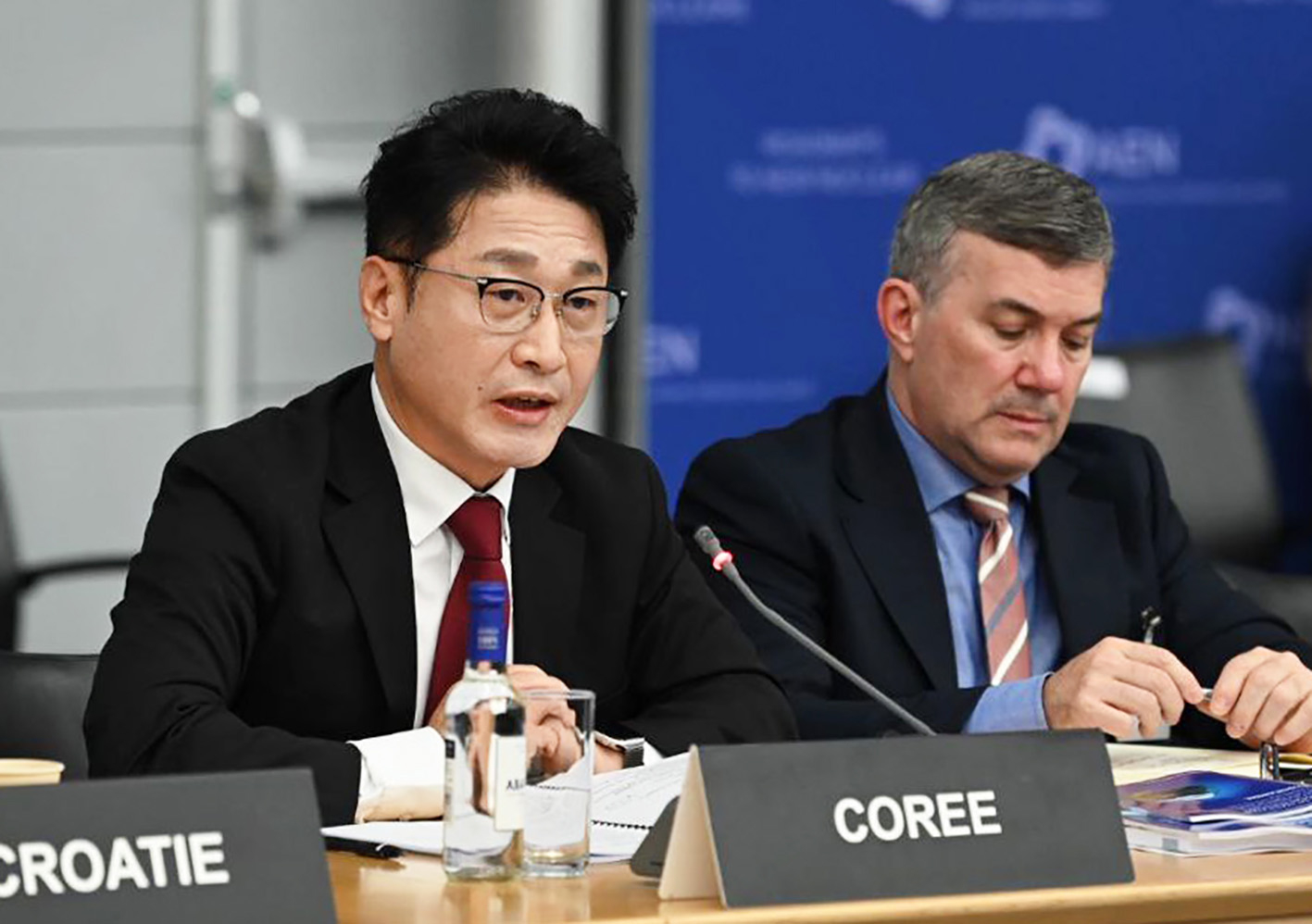In a strategic move to bolster its presence in the global nuclear energy sector, South Korea has initiated high-level discussions with Turkey and Saudi Arabia. Deputy Minister for Energy Policy, Lee Ho-hyeon, is leading a four-day mission from February 24 to 27, 2025, aiming to explore collaborative opportunities in nuclear power and clean energy. These discussions come at a time when the global energy landscape is rapidly evolving, and nations are vying for advanced nuclear partnerships to secure energy independence and sustainability.
Reviving Nuclear Collaboration with Turkey

On February 24, Deputy Minister Lee met with Turkey’s Deputy Ministers of Energy and Natural Resources, Zafer Demircan and Ahmet Berat Conkar. This meeting marks the first high-level dialogue on nuclear cooperation between the two nations in over a decade. Turkey has been actively pursuing the development of 20 gigawatts (GW) of nuclear power capacity by 2050, aligning with its long-term energy security strategy.
Turkey’s nuclear ambitions are driven by the need to reduce reliance on fossil fuels and meet the rising energy demands of its growing population. The country has been making steady progress in its nuclear plans, with the ongoing Akkuyu Nuclear Power Plant project, which is being constructed by Russia’s state-owned nuclear corporation, Rosatom. The Akkuyu plant, which consists of four 1,200-megawatt reactors, is expected to play a crucial role in Turkey’s energy transition.
Apart from Akkuyu, Turkey is considering developing additional nuclear plants in the Sinop and Thrace regions. The Sinop project, in particular, has attracted interest from multiple international players, including South Korea. The Korea Electric Power Corporation (KEPCO) had previously submitted a preliminary proposal to participate in the Sinop nuclear power project, showcasing South Korea’s intent to expand its role in Turkey’s nuclear energy future.
South Korea’s involvement in Turkey’s nuclear sector is not new. In the past, both nations engaged in discussions on nuclear cooperation, but negotiations did not result in a formal agreement. With Turkey’s renewed focus on nuclear energy expansion, South Korea sees an opportunity to strengthen bilateral ties and establish itself as a reliable partner in Turkey’s nuclear energy ambitions.
Exploring Energy Partnerships with Saudi Arabia
Following his meetings in Turkey, Deputy Minister Lee is scheduled to visit Saudi Arabia on February 26, where he will engage with Nasser Bin Hadi Alqahtani, Saudi Arabia’s Assistant Minister of Energy for Electricity Affairs. These discussions will revolve around potential collaborations in large-scale nuclear power projects, power grid expansion, and clean hydrogen development. Saudi Arabia is keen on diversifying its energy portfolio and reducing its dependence on oil, aligning with its Vision 2030 objectives.
Saudi Arabia has long expressed interest in nuclear energy as part of its strategy to transition towards a more sustainable energy mix. The Kingdom has been in talks with several international partners, including South Korea, the United States, China, and Russia, to construct its first nuclear power reactors. By leveraging nuclear power, Saudi Arabia aims to free up more of its oil resources for export while meeting its domestic electricity demands through cleaner energy sources.
In recent years, South Korea has been actively pursuing nuclear cooperation with Saudi Arabia. In 2019, South Korea’s KEPCO and Saudi Arabia’s King Abdullah City for Atomic and Renewable Energy (KACARE) signed a memorandum of understanding (MOU) to explore joint nuclear power projects. Since then, both countries have been engaged in discussions regarding potential reactor construction, particularly South Korea’s small modular reactor (SMR) technology, which offers a flexible and cost-effective approach to nuclear energy deployment.
Saudi Arabia’s decision to expand its nuclear energy program is also linked to regional dynamics. The Kingdom is seeking to match the nuclear capabilities of its geopolitical rivals, including Iran, which has been advancing its nuclear technology. By securing nuclear partnerships with technologically advanced nations like South Korea, Saudi Arabia aims to accelerate its nuclear energy development while ensuring international oversight and compliance with non-proliferation norms.
Strategic Implications and Global Context
South Korea’s proactive engagement with Turkey and Saudi Arabia comes at a time when global interest in nuclear energy is resurging. Several factors, including energy security concerns, climate change mitigation efforts, and technological advancements, are driving nations to reconsider nuclear power as a viable energy source.
By positioning itself as a key player in the global nuclear energy market, South Korea aims to expand its nuclear exports and strengthen its geopolitical influence. South Korea’s nuclear industry has gained international recognition following its successful construction of the Barakah Nuclear Power Plant in the United Arab Emirates (UAE). The Barakah project, completed by KEPCO, was the first nuclear power plant in the Arab world and serves as a model for South Korea’s potential future projects in Turkey and Saudi Arabia.
The discussions between South Korea, Turkey, and Saudi Arabia also reflect a broader trend of nations seeking to diversify their energy partnerships. As geopolitical tensions and supply chain disruptions affect traditional energy markets, countries are exploring new collaborations to ensure energy security. For Turkey and Saudi Arabia, partnering with South Korea offers access to advanced nuclear technology and expertise, facilitating their respective energy transition goals.
Furthermore, the growing competition among global nuclear power exporters, including Russia, China, the United States, and France, underscores the importance of securing strategic alliances. South Korea’s engagement in Turkey and Saudi Arabia demonstrates its commitment to expanding its footprint in the nuclear sector while competing with other global players for lucrative nuclear contracts.
Conclusion
The high-level meetings between South Korea, Turkey, and Saudi Arabia signify a mutual commitment to advancing nuclear energy cooperation. As these nations navigate the complexities of energy security and sustainability, such partnerships are poised to play a pivotal role in shaping the future of global energy dynamics.
South Korea’s efforts to establish itself as a reliable nuclear energy partner come at a crucial time when countries are seeking cleaner and more efficient energy solutions. If successful, these discussions could lead to significant collaborations that will benefit all parties involved, strengthening South Korea’s influence in the nuclear energy sector while supporting Turkey and Saudi Arabia in achieving their long-term energy objectives.
As global energy demand continues to rise, nuclear energy is expected to play an increasingly vital role in the transition towards a low-carbon future. The outcome of South Korea’s talks with Turkey and Saudi Arabia could set the stage for long-term cooperation, fostering technological exchange and economic growth while addressing the pressing challenges of energy security and climate change.
Arab Leaders Gather in Riyadh to Forge a United Stand on the Gaza Crisis



